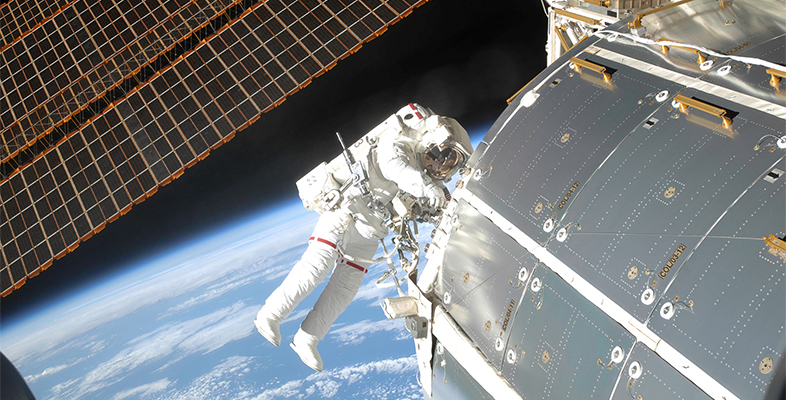Welcome to this free badged open course on Microgravity!
This course will be covering questions such as, how does the International Space Station (ISS) orbit the Earth? Is circular motion involved? What about the forces? Are they pushing or pulling the ISS to the Earth? What would happen if these forces suddenly disappeared? How does a rocket overcome the Earth’s gravity?
How has human endeavour in space impacted on other aspects of our lives? As well as GPS and studying the stars, it has also helped us to study the ageing process! The ISS helps us to study Biology, Chemistry, Quantum Physics and even banking and security! There will be interviews with several scientists along the way. But what about the cost of the ISS? Do you think that it is justified? Finally, could you be an astronaut or a scientist?!


This course is accredited by the CPD Standards Office. It can be used to provide evidence of continuing professional development and on successful completion of the course you will be awarded 24 CPD points. Evidence of your CPD achievement is provided on the free Statement of Participation awarded on completion.
Anyone wishing to provide evidence of their enrolment on this course is able to do so by sharing their Activity Record on their OpenLearn Profile, which is available before completion of the course and earning of the Statement of Participation.
Enrolling on the course will give you the opportunity to earn an Open University digital badge. Badges are not accredited by The Open University but they're a great way to demonstrate your interest in the subject and commitment to your career, and to provide evidence of continuing professional development.
Once you are signed in, you can manage your digital badges online from My OpenLearn. In addition, you can download and print your OpenLearn statement of participation - which also displays your Open University badge.
The Open University would really appreciate a few minutes of your time to tell us about yourself and your expectations for the course before you begin, in our optional start-of-course survey 67. Once you complete the course we would also value your feedback and suggestions for future improvement, in our optional end-of-course survey 68. Participation will be completely confidential and we will not pass on your details to others.
Earn this free Open University digital badge if you complete this course! The badge can be displayed, shared and downloaded as a marker of your achievement. The badge is awarded for completing the course and passing the quizzes.
Course learning outcomes
After studying this course, you should be able to:
- understand what microgravity is and the difference between mass and weight
- explain the types of scientific research that can benefit from microgravity environments, focusing on ageing
- explain the types of scientific research that can benefit from microgravity environments, focusing on bacterial resistance and planet formation
- understand some key concepts and principles that underpin scientific knowledge and why it is important to continue to ask moral questions about scientific research.
First Published: 21/08/2018
Updated: 03/08/2023

ty